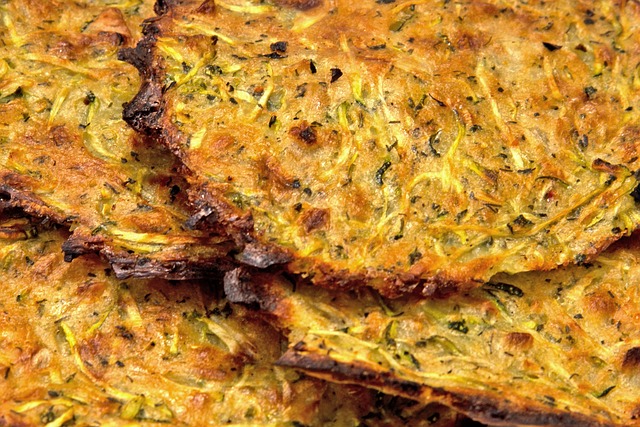Muscle soreness, common among athletes of all levels, results from micro-tears in muscle fibers during exercise, leading to inflammation and pain caused by various factors like intense workouts, improper form, or overtraining. While kratom, a natural herb, offers potential relief due to its anti-inflammatory properties, its use for muscle soreness should be approached with caution, especially regarding drug test implications. Customized workout plans focusing on proper technique, hydration, rest, and tailored recovery techniques provide a holistic, effective approach to muscle soreness relief that surpasses one-size-fits-all methods. These plans not only aid faster recovery but also foster healthier lifestyles by addressing the root causes of muscle soreness and reducing stress and anxiety.
After an intense workout, muscle soreness can leave you feeling stiff and uncomfortable. Understanding the causes behind this post-exercise symptom is key to finding effective relief. This article explores one natural solution: Kratom, a drug test-friendly herb with pain-relieving properties. We’ll delve into how it works and guide you through crafting a personalized workout plan tailored for muscle soreness relief, offering a holistic approach to post-workout recovery.
- Understanding Muscle Soreness and Its Causes
- The Role of Kratom in Relieving Muscle Soreness
- Crafting a Personalized Workout Plan for Effective Relief
Understanding Muscle Soreness and Its Causes
Muscle soreness is a common issue that affects individuals of all fitness levels, from casual weekend warriors to professional athletes. Understanding the root causes of this discomfort is key to developing effective strategies for relief. Muscle soreness typically arises from micro-tears in muscle fibers during exercise, leading to inflammation and subsequent pain. This process is often accelerated by intense or unfamiliar workouts, improper form, or overtraining. Additionally, factors like dehydration, inadequate recovery time, and certain medications can exacerbate muscle soreness.
One interesting aspect to note is the potential involvement of substances like kratom in muscle soreness relief. While primarily known for its opioid-like effects, kratom has been used by some individuals as a natural pain reliever. However, it’s crucial to approach this with caution, as kratom use may have side effects and could impact drug tests, especially if not used responsibly or without professional guidance. In the context of customized workout plans, addressing muscle soreness involves a holistic approach that includes proper exercise techniques, adequate hydration, optimized rest periods, and tailored recovery strategies.
The Role of Kratom in Relieving Muscle Soreness
Kratom, a natural herb with a growing popularity in wellness circles, has gained recognition for its potential benefits in muscle soreness relief. While it is primarily known as a stimulant or pain reliever, kratom’s active compounds, including mitragynine and 7-hydroxymitragynine, have anti-inflammatory properties that can help ease post-workout muscle aches and pains. These compounds interact with opioid receptors in the body, providing a soothing effect without the addictive risks often associated with prescription painkillers.
For athletes and fitness enthusiasts looking to recover faster from intense workouts, incorporating kratom into their post-exercise routine could be beneficial. However, it’s crucial to approach its use responsibly. As with any substance, proper research and understanding are essential. Moreover, considering that kratom may appear on drug tests due to its opioid interactions, users should consult with healthcare professionals or sports medicine experts for personalized guidance, especially if they have upcoming events or competitions.
Crafting a Personalized Workout Plan for Effective Relief
Creating a personalized workout plan tailored to muscle soreness relief is a game-changer for anyone seeking to recover and rejuvenate. Unlike one-size-fits-all approaches, this strategy considers an individual’s unique physical needs, current fitness level, and specific areas of discomfort. By assessing factors like age, medical history, and any underlying conditions, you can design a safe and effective routine. Incorporating various exercises, such as stretching, strength training, and low-impact cardio, helps target muscle tension and promotes blood flow, aiding in faster recovery.
Unlike relying on quick fixes or Kratom drug test solutions, this personalized method ensures long-term relief by strengthening muscles and improving flexibility. It’s a holistic approach that considers not just the body but also the mind, as consistent exercise releases endorphins, reducing stress and anxiety that often exacerbate muscle soreness. With these tailored plans, individuals can bid farewell to persistent discomfort and embrace a healthier, more active lifestyle.
In conclusion, muscle soreness is a common aftereffect of intense exercise, but with the right approach, it can be effectively managed and relieved. By understanding the causes behind post-workout muscle aches, one can employ natural remedies like kratom to aid in recovery. Combining this knowledge with the creation of personalized workout plans tailored to individual needs ensures a more comfortable and efficient path towards soreness relief. Moreover, as Kratom has gained popularity for its potential benefits, being aware of its effects and considering it as an alternative treatment option during your fitness journey is worth exploring, especially when preparing for drug tests, ensuring a balanced approach to wellness.














